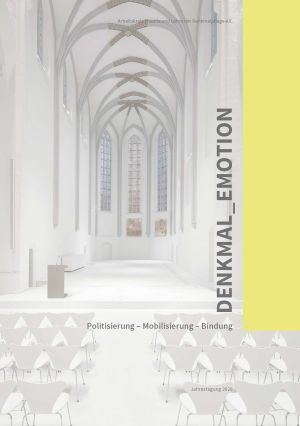Zitationsvorschlag
Veröffentlicht
Nicht schreien … und trotzdem die richtigen Denkmale schützen!
Historic monuments, which present their original substance to us in sedimented temporal layers that (often) require excavation and interpretation, are able to tell us stories about the past. Monuments represent a unique and valuable source for describing and recognizing past conditions, and for finding sustainable, high-quality preservation solutions for building as well as for society in the present and the future. They are received by us as people who have experienced and continue to experience our lives with them and through them. Yet these experiences are often very different, and at times they can inspire the telling of contrasting, even diametrically opposing stories. We argue with each other about the value of monuments and about what they express – we love them and we hate them. This gives rise to communication, which can be an important foundation for democracy. In a dictatorship, one person tells a one-sided story; all other stories are suppressed, passed over in silence, or declared to be false. Democracy, in contrast, develops at the intersection of many stories. A dictatorship will inevitably fall when its narrative dies along with the dictator. Thus monuments provide an important basis for a functioning civil society with its spaces of communication. This is demonstrated with reference to a small number of rather controversial examples from the German state of Brandenburg.








